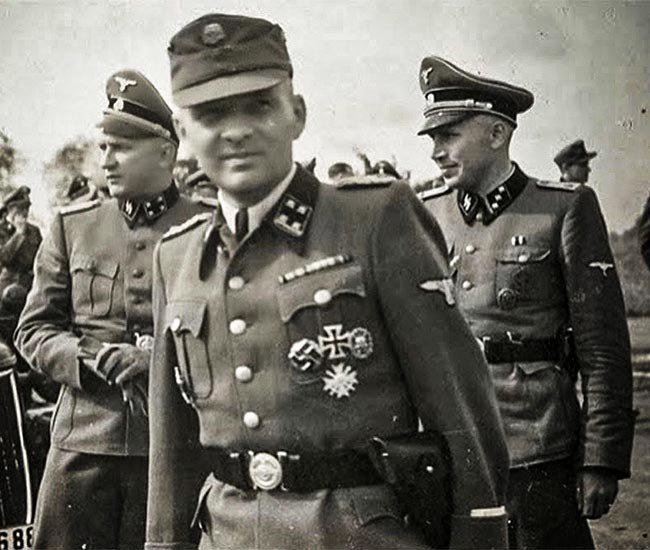I personally can’t imagine what it must have been like for anyone involved in the Holocaust but it certainly makes me think of the times we live in, right now. My mom told me once that she thinks about what her grandchildren and great grandchildren will say, when looking back on our times.
They’ll likely ask what we did about the Abortion and Euthanasia Holocausts we are living through right now. What are we going to say? I went to a couple of Life Chains? I wrote a letter to my politician? In one sense Oskar Groening was just doing what he was told to do! How many doctors, nurses and medical personnel are doing just that – taking the lives of the innocent and vulnerable because it’s been requested by an

How did Hitler get millions of people to follow along blindly and not fight back? Now our fellow Americans are taking the same path.
individual or mandated by the state? And how many of us just stand by and let it happen? Is it enough for us to be pro-life, pro-family, anti-culture-of-death, but go about our daily business as if nothing is going on? www.serviamministries.com Sarah Gould FULL ARTICLE
I’m not writing this to make you feel guilty, nor to encourage you to run out and do crazy things in the name of the Pro-Life Movement. I am encouraging you to look at your own life and ask yourself how God might be asking you to defend life.
We aren’t all called to do sidewalk counseling (I believe I would be a blubbering mass of tears, begging those women not to enter those clinics) or pro-life activism in the literal sense.
But God calls everyone to support and defend life at one point or another through their own gifts; to write letters to politicians, to financially support those who are fighting for life, to have children, to encourage and support those struggling with their own children or aging parents, to be jailed for the defense of life like Mary Wagner, or even to give their own lives for their children, as St. Gianna Beretta Molla did (her feast day was yesterday). www.bbc.com – SUPPORTING ARTICLE

